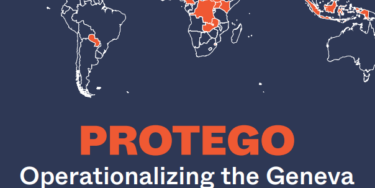This research study was carried out by the Moroccan Family Planning Association in partnership with the Asian-Pacific Resource and Research Centre for Women (ARROW), Malaysia.
The research was conducted to generate evidence on the nature and consequences of unsafe abortions in Morocco and how religious fundamentalism (in the case of Islam) prevents adequate policies and practices for safe abortion services.
Abortion is largely prohibited in Morocco, as is pre-marital sex, which is illegal under the Criminal Code. Abortion is only allowed to save the life of the mother, with spousal consent. Illegality also means there are presently no official statistics on the number of illegal abortions performed in Morocco. Presently, the Criminal Code does not allow abortion in cases of pregnancy even in the case of rape, incest, or mental illness. Many women take desperate measures and seek abortion in unsafe conditions, face prospects of abandoning children, or resort to infanticide.
Policies and programmes in Morocco are influenced by Islam; raising Sexual and Reproductive Health and Rights issues, such as access to safe abortion services, is largely shunned.
In May 2015, Morocco initiated a reform process by a directive of the King, to expand legal protections for women opting for abortion. The decision could help improve access to services, although even if the law is implemented adequately, it will continue to leave unmarried women out of the equation.
The recent directive is the first time that a Muslim institution is involved in the debate, as the abortion law was established under the Catholic Church in 1920 while Morocco was a French protectorate.
Recommendations
- Ensure the passing of the law and its enforcement, including the provision of an adequate training and implementation plan to service providers, so that abortion services become available to women in the case of rape, incest and foetal malformation.
- Establish adequate services, and train doctors and other medical staff, within healthcare establishments to manage and treat abortion complications as well as to provide medical and therapeutic abortions, without judgement.
- Ensure that the prevention of abortion is reinforced, focusing on family planning and emergency contraception. At the same time, consider the position and rights of young people, ensuring their access to these services, without discrimination and judgement.
- Acknowledge the real threat to women as a result of their access to unsafe abortion services and the causal connection to maternal mortality and morbidity.
- Create an environment to advocate for change and develop progressive viewpoints in relation to women’s position in society and gender equality and empowerment, with a view to uplifting the position of all women in Moroccan society, including marginalised and vulnerable women.
- Consider the involvement of all actors, including religious leaders, in changing mind-sets.
- Ensure the collection of data on abortion by State authorities is conducted in a non-discriminatory manner, ensuring the anonymity of patients and protection and respect for service providers.
- Implement strategies to increase awareness among the general public and stakeholders on the existing causality between abortion and maternal mortality.
Table of Contents
- Introduction
- Profiling Morocco: SRHR and Religious Fundamentalism
- Understanding the Interlinkages
- Conclusions
- Recommendations



